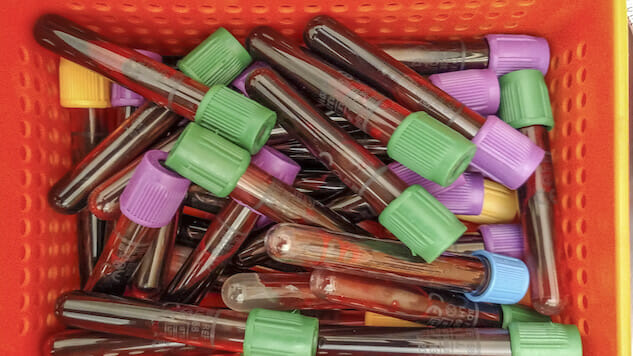Blood Tests May Be the Future of Diagnosing Children with Autism

A new study shows that a blood test is capable of accurately detecting autism in children.
The original study was relatively small, involving 83 children with autism and 76 without autism, all between the ages of three and 10, and researchers collecting blood samples from each child. The blood was then analyzed, allowing researchers to pinpoint key metabolism markers.
The test was more than 96 percent accurate in identifying the disorder. Furthermore, it was able to predict autism regardless of where on the spectrum an individual fell.
This is significant, because children with autism have typically been diagnosed by a team of medical professionals who monitor their behavior and detect specific traits. This system can be, because the severity of symptoms ranges widely. However, with a blood test, the disorder can be identified chemically rather than visually.
-

-

-

-

- Curated Home Page Articles By Test Admin October 21, 2025 | 3:10pm
-

- Curated Home Page Articles By Test Admin October 21, 2025 | 2:57pm
- Urls By Test Admin October 21, 2025 | 2:57pm
- Curated Home Page Articles By Test Admin October 21, 2025 | 2:55pm
-

-

-

-

-

-

-

-

-

-

-

-

-

-

-

-

-

-

-

-

-

-

-

-

-

-

-

-

-

-

-




































